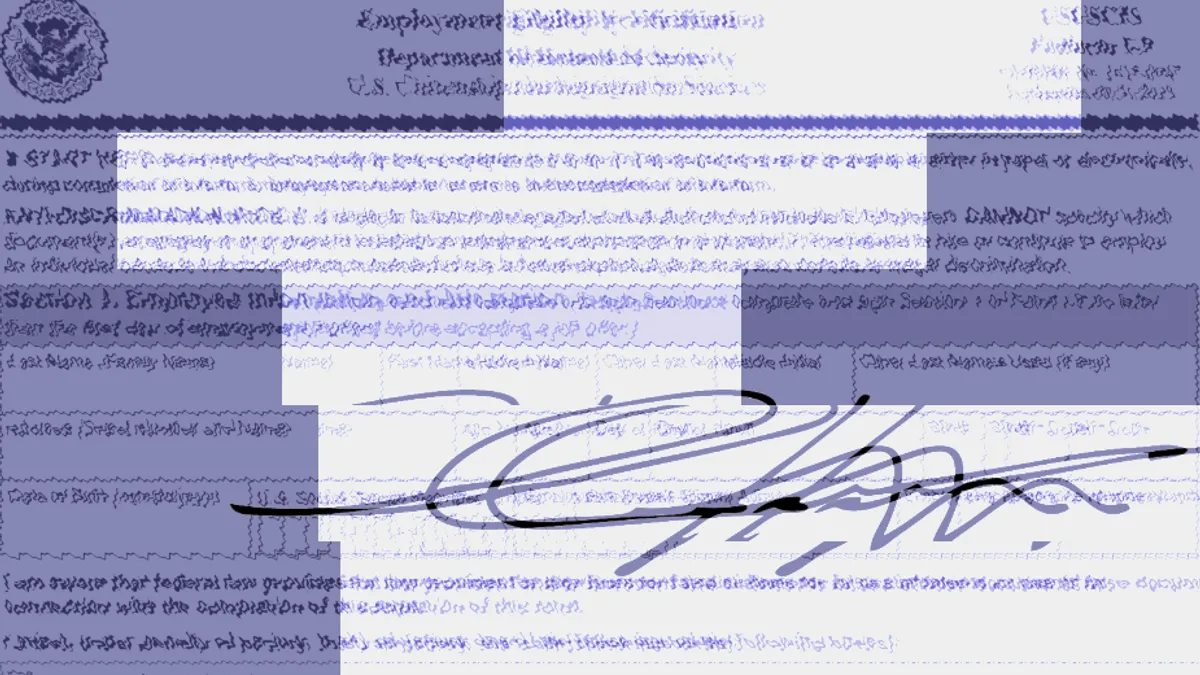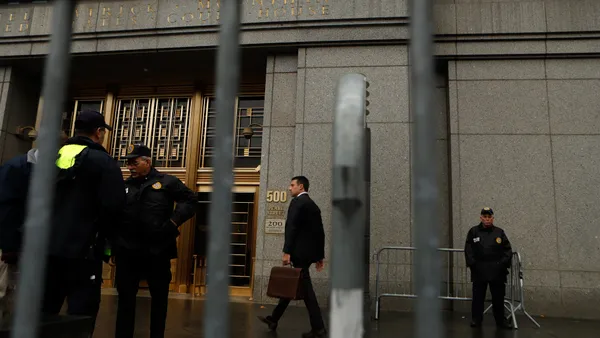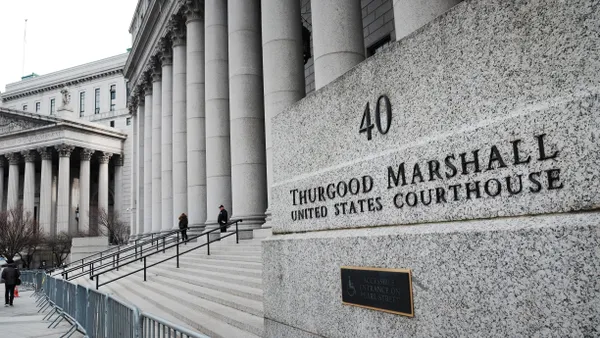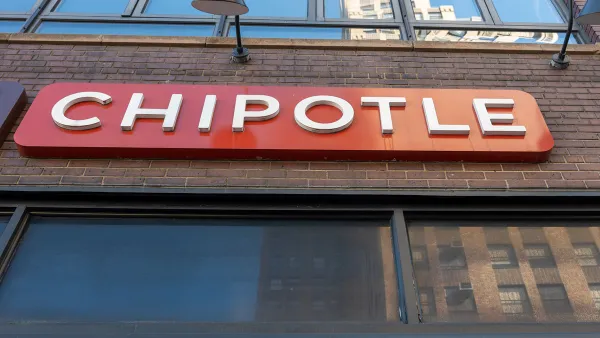Dive Brief:
- A federal judge in the two-year-old worker classification lawsuit against GrubHub says the case can move to trial, Ars Technica reports. Judge Jacqueline Scott Corley rejected the company's motion for summary judgment.
- An ex-GrubHub driver, Raef Lawson, sued the food delivery service for allegedly not reimbursing him for expenses he accrued during his deliveries. GrubHub argues that he's not entitled to reimbursement because he failed to keep accurate records of expenses and worked for different companies, making it difficult to know who should reimburse him and how much.
- Ars Technica says the court's decision might provide some clarity on the question of whether such a worker is an employee or an independent contractor. The trial is set for September 5.
Dive Insight:
The GrubHub case has some noteworthy details that could affect pending and future worker-classification suits. Employers typically forbid staff from working for other employers during their work hours. Even employees who moonlight don't typically do so during their primary employer's hours.
GrubHub apparently knew the driver worked for other companies, and Lawson certainly isn't alone among gig workers when it comes to dividing time between employers. Studies of workers classified as independent contractors show that those individuals choose to work for multiple companies and decide how they want to divide up their time.
Independent contractors typically set their rates to cover reimbursable expenses or work out an agreement on how to handle out-of-pocket costs with the company. In this case, however, the two parties don't seem to have had an agreement specifying reimbursable expenses. Last month, a United Van Lines employee also sued his employer over misclassification, charging that the company didn't pay for fuel and repairs while alleging issues with its pay scheme for drivers.
Of course, HR observers haven't forgotten about Uber, Lyft and other gig economy companies that have been sued for alleged misclassification. Some cases have been decided without clarifying the distinction between employees and independent contractors.
The GrubHub case could set a precedent for this issue. Should the court make a clear distinction between the two classifications, employers would have a much clearer path toward reducing employment costs.











